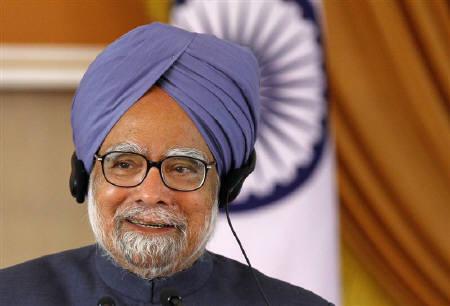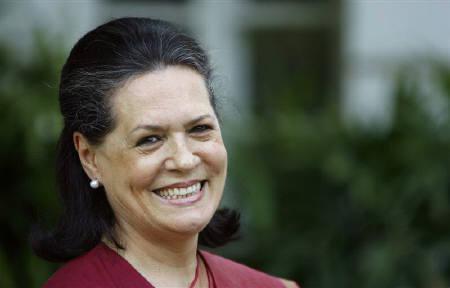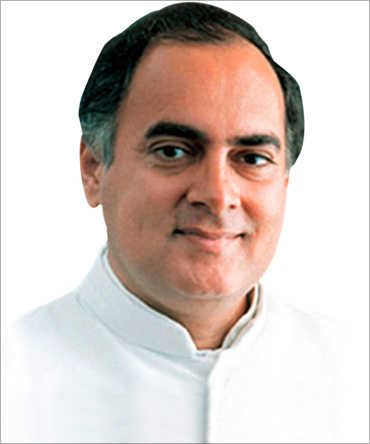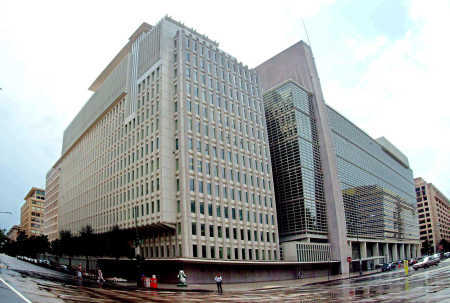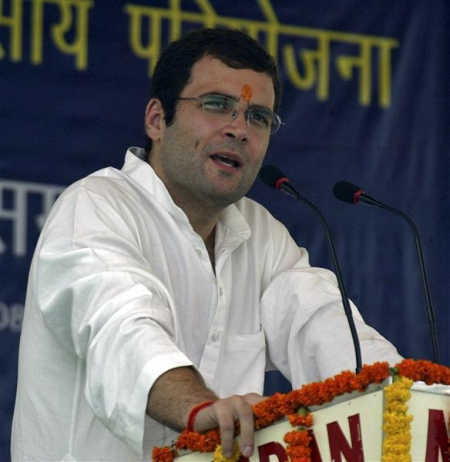 | « Back to article | Print this article |
Pulok Chatterjee: Man who has PM's ear and Sonia's faith
Pulok Chatterjee, perceived as being close to Sonia Gandhi, has joined the Prime Minister's Office. His brief is to get things moving. Santosh Tiwari on the PM's new principal secretary.
On January 18, top notch private power producers like Ratan Tata of Tata Power, Anil Ambani of Reliance Power, L Madhusudan Rao of Lanco Infratech and Naveen Jindal of Jindal Power met Prime Minister Manmohan Singh at his office in South Block to tell him their problems.
Shortage of coal and gas, they said, had put a question mark on new capacity of 42,000 megawatts. This could jeopardise investments of over Rs 200,000 crore (Rs 2,000 billion).
After listening to them, Prime Minister Singh announced at the meeting that a committee of secretaries would be set up to go into the issues, and it would chalk out 30-, 60-, and 90-day plans. The man chosen to head the critical committee was Pulok Chatterjee, principal secretary to the prime minister.
If recent news reports are anything to go by, Chatterjee, a 1974-batch officer of the Indian Administrative Service (Uttar Pradesh cadre), must be a very busy man. He leads another committee that will suggest how to boost tourism in the country.
Chatterjee is also a key strategist for Prime Minister Singh's planned "big push" to infrastructure in order to revive the slowing economy.
Click here for Rediff Realtime News!
Click NEXT to read more...
Pulok Chatterjee: Man who has PM's ear and Sonia's faith
He is responsible for coordinating with all the ministries concerned, so that the plans take off quickly from the drawing board. He has already met the chieftains of large public sector units to review their investment plans.
Most of them are sitting on huge piles of cash but are reluctant to invest because of the adverse business conditions. Maybe Chatterjee's gentle persuasion will make them spend that cash.
All this is good news for business. Political analysts see in his appointment a smart move by the Congress High Command to restore the image of the prime minister's office which has been damaged by scams (Adarsh Housing Society, Commonwealth Games and 2G spectrum), controversies (the Lokpal Bill, the aborted bid to allow foreign investment in multi-brand retail), a headstrong coalition partner (Mamata Banerjee) and non-stop charges of "policy paralysis".
And these controversies have hit the Manmohan Singh government right at the middle of its term, unlike the Bofors scandal that hit the Rajiv Gandhi government towards the fag end of its term. If these were to be left unattended, the Congress's image will get damaged beyond repair by the time the next general elections are held in the summer of 2014.
So Chatterjee was recalled from the World Bank, where he had gone on a four-year assignment in 2008, and installed at the prime minister's office in October.
Click here for Rediff Realtime News!
Click NEXT to read more...
Pulok Chatterjee: Man who has PM's ear and Sonia's faith
He replaced TKA Nair, an IAS officer of the 1963 batch, who had been Prime Minister Singh's principal secretary since 2004.
The other contender for the post was BK Chaturvedi, the former cabinet secretary, a man trusted by Prime Minister Singh, and currently a member of the Planning Commission. Prime Minister Singh settled for Chatterjee because he can handle policy issues and political nuances deftly.
Former colleagues in the Uttar Pradesh bureaucracy describe him as honest, straightforward, likeable and upright. What may also have tilted the scales in his favour is that he is a confidant of Congress President and United Progressive Alliance Chairperson Sonia Gandhi.
Chatterjee's ties with the Gandhi family go back many years to when he was posted at Rae Bareli, the stronghold of the Gandhis. When Rajiv Gandhi became prime minister in 1984 (he had won a landslide victory because of the sympathy wave generated by his mother Indira Gandhi's murder by her bodyguards), he called Chatterjee to Delhi and made him a director in the prime minister's office.
When Rajiv Gandhi was voted out of power in 1989, Chatterjee returned to Uttar Pradesh. And when the Rajiv Gandhi Foundation was set up in 1991, he took leave from service to work for it.
Click here for Rediff Realtime News!
Click NEXT to read more...
Pulok Chatterjee: Man who has PM's ear and Sonia's faith
In 1999, when Sonia Gandhi became the leader of Opposition during the National Democratic Alliance regime, Chatterjee was assigned to her as officer on special duty.
That's when he became really close to the first family of Indian politics. Anis Ansari, a retired bureaucrat (1973 batch of IAS), remembers that in 2000, when he was the president of the Aligarh Muslim University Old Boys' Association, he wanted to invite Sonia Gandhi for a function at Kanpur.
He contacted Chatterjee, though Sonia Gandhi couldn't make it to the function. And when Congress came to power in 2004, he was made joint secretary in the prime minister's office.
In that stint, it was Chatterjee's job to ensure that whenever Prime Minister Singh and Sonia Gandhi spoke from the same platform, they did not contradict each other. So he had to look at both the speeches.
He was responsible for appointment of key officials, and the implementation of the National Common Minimum Programme (between the Congress and its Left allies). More important, he was the official link between Prime Minister Singh and Sonia Gandhi.
Besides these, he was also instrumental in civil services reforms which included target-setting and merit-based promotions.
Click here for Rediff Realtime News!
Click NEXT to read more...
Pulok Chatterjee: Man who has PM's ear and Sonia's faith
While he was handling NCMP, Chatterjee had broken it into some 120 promises and all the schemes were tabulated.
After every three months, Chatterjee presented the implementation and monitoring report to Prime Minister Singh. This work ethic, it is expected, will now return to the prime minister's office. Naturally, this perturbs the old guard.
A senior government officer, on condition of anonymity, says that only a handful of people are apprehensive that Chatterjee will completely overhaul the way the government has functioned in the last two years.
Still, those who keep a close tab on bureaucrat movements point out new officers have been placed through lateral transfers in various ministries to achieve neutrality grafting - bureaucratese for placing of some new officials and retaining some of the old ones to change the functioning in the particular ministry effectively.
Click here for Rediff Realtime News!
Click NEXT to read more...
Pulok Chatterjee: Man who has PM's ear and Sonia's faith
They say now that the whole process has been completed, Chatterjee has started pushing the government agenda through his own structured way.
Chatterjee is seen as a perfect blend of an official mind and political mind who can steer the Gandhi family, and the Congress, out of the current inertia. He is considered the brain behind Sonia Gandhi's entry into full-time politics after Rajiv Gandhi's assassination - it was Chatterjee who quelled the rebellion within the Congress.
Probably, this time around, he could be setting the stage for her son, Rahul Gandhi, to check into the prime minister's office in 2014.

